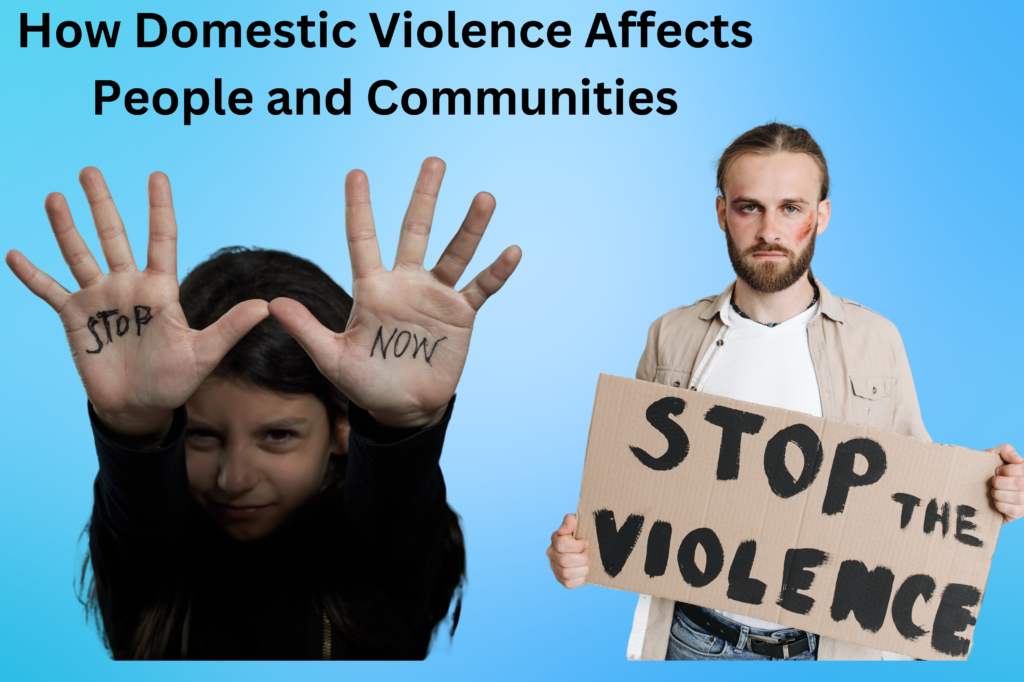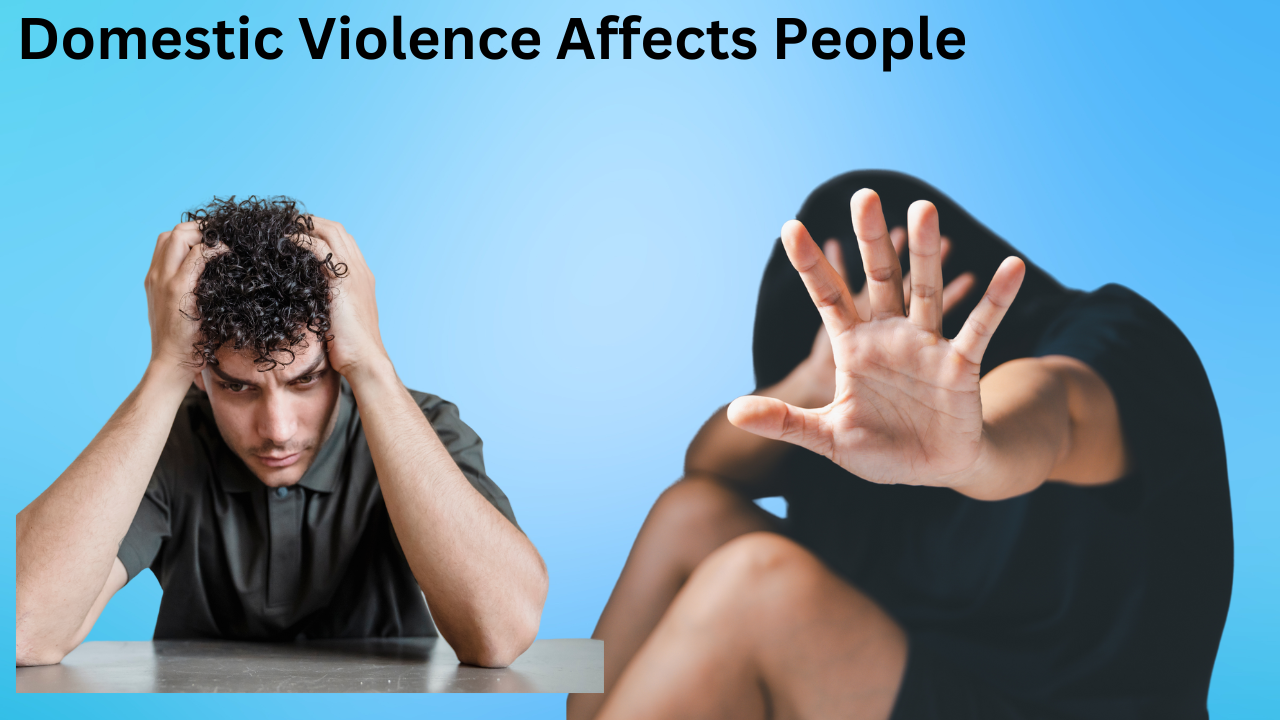Domestic abuse is a big problem in society that affects a lot of different types of people. Sociology is very important for knowing domestic violence because it helps us understand its causes, effects, and possible solutions. This article will talk about the sociology of domestic violence, including what causes it, how it affects people and communities, and what can be done to stop it.

What is Domestic Violence?
Definition of Domestic Violence
When one person in a close relationship abuses and controls another person, this is called domestic violence. It includes sexual, physical, emotional, and mental abuse that usually gets worse over time.
Forms of Domestic Violence
Several types of abuse can happen in the home. When someone hits someone or does something else mean, that’s called physical abuse. Verbal insults and trickery are both types of emotional abuse. Any sexual act that isn’t consented to is sexual violence. Psychological abuse usually involves threats and being alone with someone.
Domestic Violence in Different Contexts
Domestic abuse doesn’t just happen to one group of people. It can occur in many settings, such as marriages, dating relationships, and across countries. Men can also be abused, which shows how widespread the problem is. Women are the most common victims.
The Sociological Perspective on Domestic Violence
Socialization and Gender Roles
From a sociological point of view, gender roles have a significant effect on domestic abuse. In many countries, traditional gender roles say that men should be in charge and women should be submissive. These differences in power between men and women can make relationships unhealthy, where violence is used as a way to control others.
Power and Control in Relationships
Sociologists say that power and control are significant to understanding domestic abuse. Abusers usually try to control their partners by affecting their minds and bodies. This need for control can come from social pressures, personal insecurities, or abuse that has happened in the past.
The Role of Social Institutions
Family, school, and church are some of the social institutions that can either support or stop domestic violence. For example, how a family works can affect people’s thoughts about acceptable relationship behaviour. When schools and towns talk about these problems, they can help victims and stop people from being abusive.
Causes of Domestic Violence
Economic Factors
A lot of the time, economic instability is linked to personal violence. Unemployment, hunger, and stress over money can make relationship problems worse. Dependence on money can also make it hard for victims to leave abusive situations because they don’t want to lose their money.
Norms of culture
How people in a culture feel about domestic abuse can affect how it is seen and dealt with. Because of deeply held traditions and beliefs, domestic violence is seen as usual or not a big deal in some countries. It makes it hard for victims to get help or leave abusive settings.
Triggers in the mind and emotions
Abusers may have mental health problems that make them act the way they do. When combined with low self-esteem or traumatic events from the past, mental illnesses like depression, anxiety, and Personality disorders can cause violent outbursts in close relationships.
The Impact of Domestic Violence on Individuals
Physical Consequences
When people are abused in the home, they can get anything from minor bruises to severe injuries or even death. People who are abused over and over again may have long-term health problems, such as constant pain, disability, and weaker immune systems.
Effects on emotions and mental health
Getting hurt in a relationship can leave deep mental scars. Anxiety, sadness, and post-traumatic stress disorder (PTSD) are common symptoms for victims. They may lose their sense of self-worth and identity because they are afraid and powerless, which makes it even harder for them to leave their abusive partners.
Isolation and Stigma in Society
Some victims of domestic violence may stop going out with other people because they feel controlled by their abuser or ashamed of being seen by different people. Some people may feel bad about themselves, believe they caused the abuse, or be scared of what other people will think of them. It can leave them even more stuck in a bad relationship, making them less likely to move on.
The Broader Social Impact of Domestic Violence
Effects on Families and Children
Family members, especially children, are deeply affected by domestic violence. Children who see domestic abuse are more likely to have behavioural and emotional problems. They might feel anxious or angry or act abusively in future relationships.
How much it costs society’s economy
Domestic abuse also has significant effects on the economy. The money that society has to spend on mental health services, medical care for accidents, and lost work time because of absences all adds up to a big problem. Also, police and social workers spend money and time dealing with cases of domestic violence.
What Happens to Communities
When domestic abuse is common, it affects more than just the victims. People are afraid and unstable because of it, especially in places where violence is common. Making abuse seem normal can hurt social relationships and the health of the group as a whole.
Preventing Domestic Violence
Education and Awareness Campaigns
One of the best ways to stop domestic abuse is to teach people more. Campaigns that teach people about the signs of domestic abuse, how important good relationships are, and the kinds of help that are out there can encourage them to get help. Good ways to get this information out are through media efforts, schools, and workplaces.
Interventions in law and policy
Legal defences for people who have been abused at home need to be improved right away. It is important to make rules about shelters, restraining orders, and harsher punishments for abusers to keep victims safe. To keep weak people safe, governments and police must follow these rules.
Services to Help Victims
People who are victims of domestic abuse need to be able to get to shelters, counselling, and hotlines. Support services give people a safe place to leave abusive relationships and start getting better. These services also help victims regain their feet by giving them tools for financial independence and mental health support.
Domestic Violence and Gender
Gender Disparities in Victimization
Women are more likely than men to be victims of domestic abuse. This difference between men and women is caused by a patriarchal society in which women are usually seen as less important than men. When people talk about domestic abuse, violence against women is still a big issue.
What Male Victims Go Through
Men can also be abused in the home, even though it is usually thought of as a problem for women. However, societal expectations of what it means to be a man can keep men from telling others about their experiences. It means that too few reports are made, and there aren’t enough tools for male victims.
LGBTQ+ Domestic Violence
Sexual and physical abuse can also happen to LGBTQ+ people. People can abuse each other in these places because they are homophobic or because one person has more power than the other. Some problems LGBTQ+ victims of domestic violence may have are unique, like taking a long time to find support services that are open to everyone.
Conclusion
Domestic violence is a widespread problem that impacts people, families, and neighbourhoods. It has a lot of different causes, such as national norms, power imbalances, and psychological issues. Domestic violence has effects that go beyond physical harm. It causes mental pain, social isolation, and long-term costs to society. But it is possible to stop domestic violence and help victims with education, changes to the law, and a wide range of support systems. To make society safer and more fair for everyone, people, groups, and governments must all work together to solve this problem.
